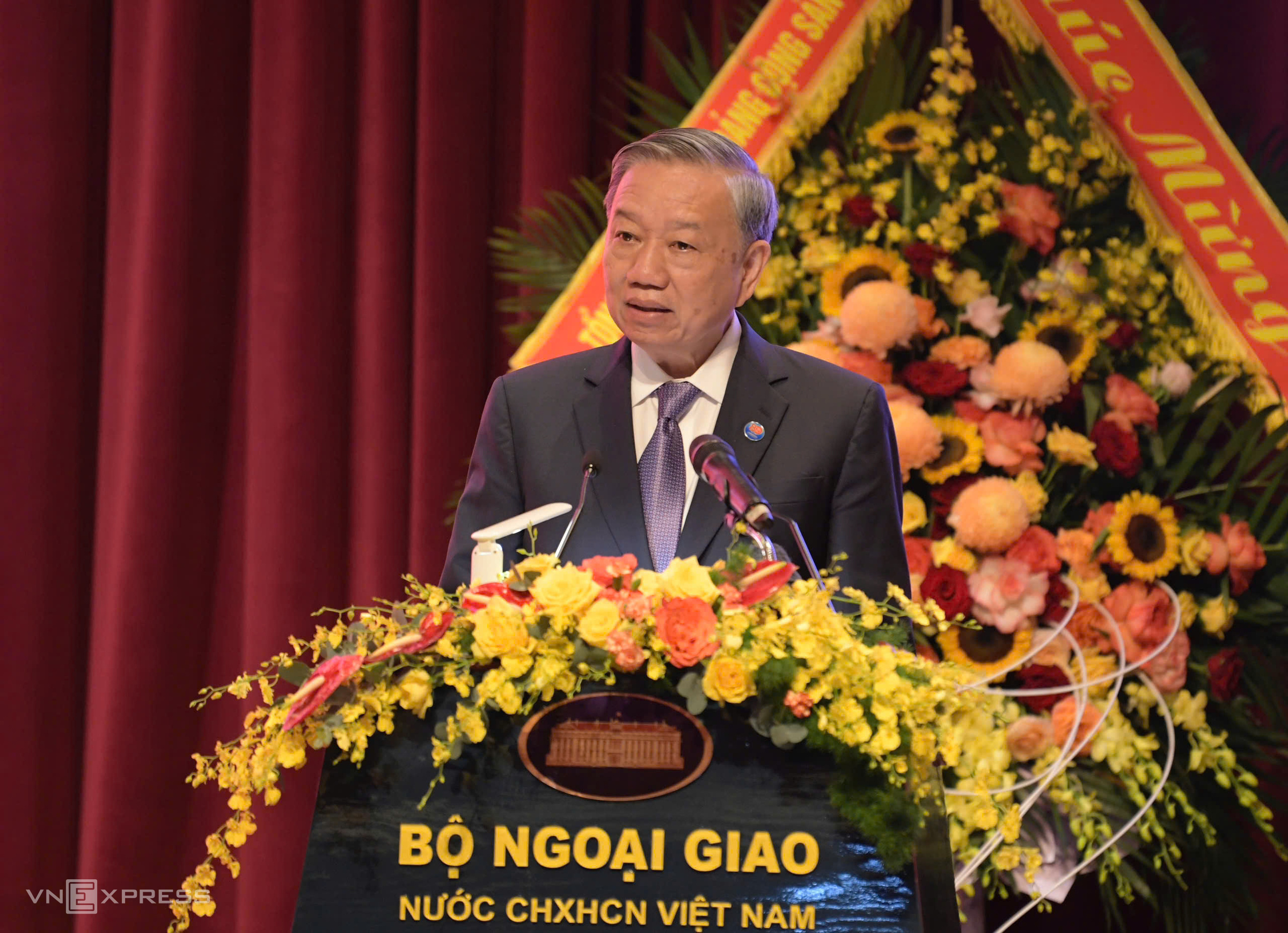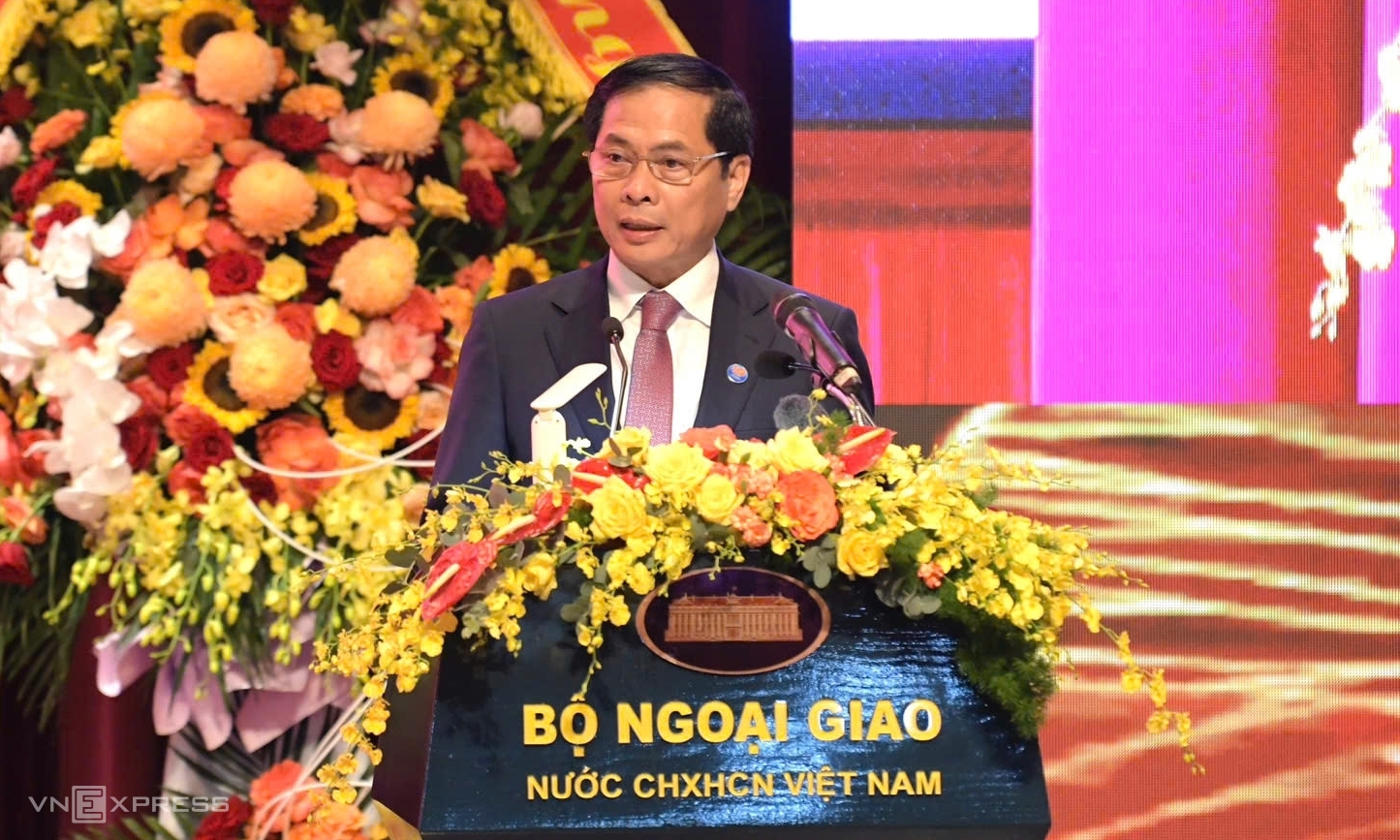Speaking at the 80th anniversary of Vietnam's diplomatic service on August 25, Party General Secretary To Lam said diplomacy has always been intertwined with the nation's destiny, from independence to achieving its current international standing.
Amidst significant global shifts, General Secretary To Lam outlined the historic mission of Vietnamese diplomacy: maintaining a peaceful and stable environment conducive to achieving major national breakthroughs. He emphasized two key objectives: becoming a modern industrialized country with upper-middle income by 2030 and a high-income developed socialist country by 2045.
 |
Party General Secretary To Lam speaks at the 80th anniversary of Vietnam's diplomatic service on 25/8. Photo: Giang Huy |
Party General Secretary To Lam speaks at the 80th anniversary of Vietnam's diplomatic service on 25/8. Photo: Giang Huy
To achieve these goals, General Secretary To Lam believes Vietnam needs to build a comprehensive, modern, and professional diplomatic service with a distinct Vietnamese identity.
This comprehensive approach encompasses three pillars: Party diplomacy, State diplomacy, and people-to-people diplomacy. These must be closely integrated with national defense, security, economics, science and technology, culture, and external information.
Modernization in diplomacy involves adopting new thinking, methods, and tools, such as digital diplomacy, big data analysis, digital citizen initiatives, and digital communication.
The diplomatic sector also needs professionalism in personnel, organization, enforcement of discipline, conduct, negotiation skills, and multilateral capabilities on a regional and global scale. The distinct identity of Vietnamese diplomacy lies in its firm principles, flexible strategies, and unwavering commitment to national interests.
General Secretary To Lam highlighted economic and technological diplomacy as key priorities. These include actively attracting high-quality resources, expanding markets, and upgrading and signing new-generation, high-quality free trade agreements (FTAs). He stressed maximizing diplomacy's role in specialized fields, particularly science and technology, and education and training.
He also emphasized the importance of citizen protection, providing reliable support for Vietnamese communities abroad, and effectively leveraging the global Vietnamese intellectual workforce.
"As we stand in the international community with a new posture, we can proudly say that Vietnamese diplomacy not only serves the Fatherland and the people but also contributes to fostering hope for a peaceful, cooperative, and developing world," the General Secretary said.
 |
Deputy Prime Minister and Minister of Foreign Affairs Bui Thanh Son speaks at the 80th anniversary of Vietnam's diplomatic service on 25/8. Photo: Giang Huy |
Deputy Prime Minister and Minister of Foreign Affairs Bui Thanh Son speaks at the 80th anniversary of Vietnam's diplomatic service on 25/8. Photo: Giang Huy
Speaking at the event, Deputy Prime Minister and Minister of Foreign Affairs Bui Thanh Son said that from its inception, the diplomatic service has carried the noble mission of being a "component force of the Vietnamese revolution" on the silent front.
He affirmed that the diplomatic sector would continue to be a trailblazer, a bridge connecting national interests with global trends, a solid foundation for national development, and a shining example of resilience and dedication.
Ngoc Anh












